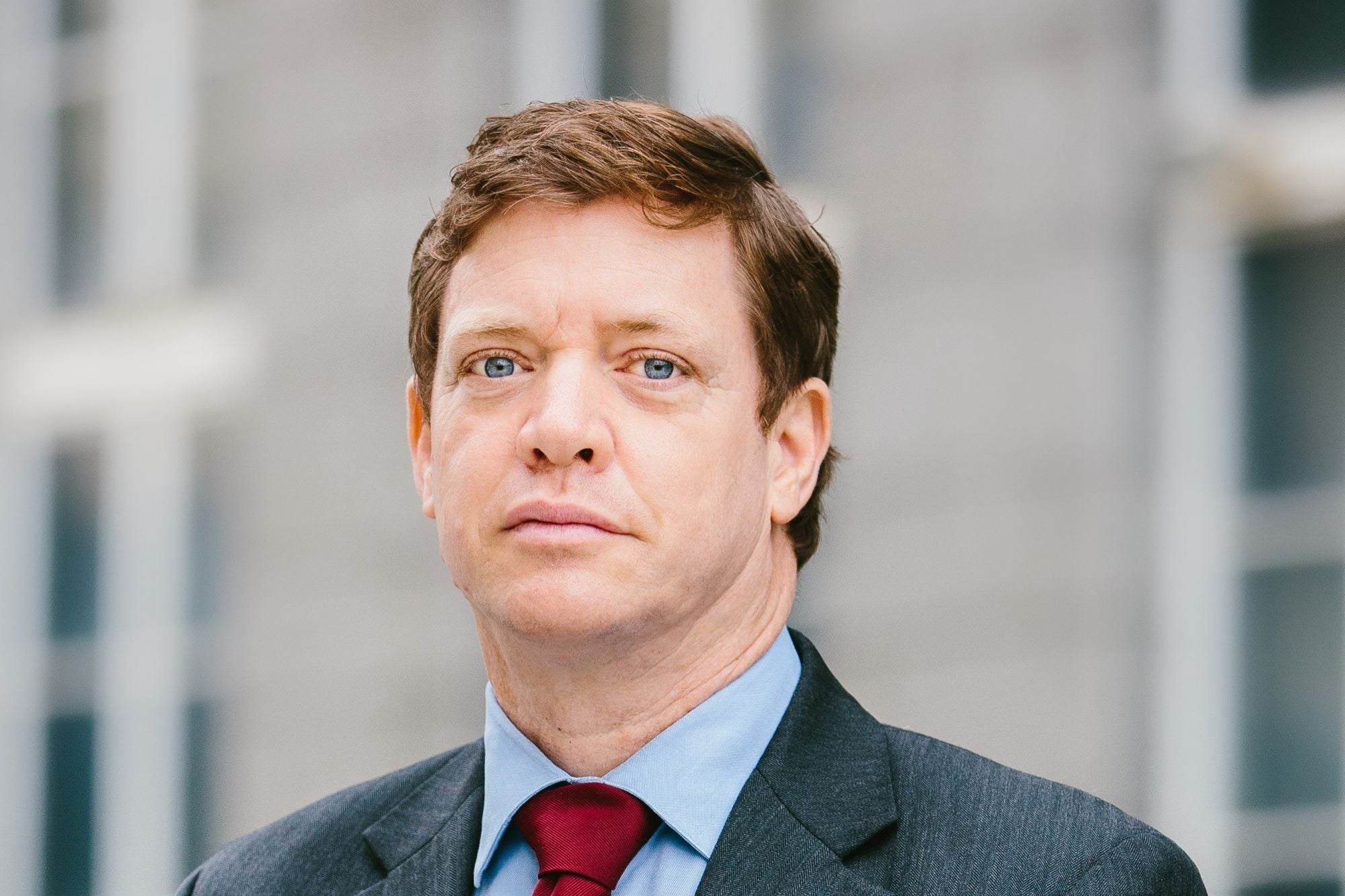

Opinions expressed by Entrepreneur contributors are their own.
You’re reading Entrepreneur United Kingdom, an international franchise of Entrepreneur Media.
Stephen Kines has been building businesses with his co-founder Tony for over 30 years, but with Goldilock – and its flagship physical cyber product FireBreak – he’s scaling a truly global vision. From Wolverhampton to Singapore, his team is tackling one of tech’s toughest problems: how to grow fast, stay agile, and never compromise on trust. Entrepreneur UK finds out more.
What strategies helped you scale efficiently without compromising quality?
My co-founder Tony and I have known each other for over three decades, and we’ve spent a lot of that time building and scaling businesses. The success stories have consistently been characterised by great people. Hire the best people, empower them to make decisions, learn from setbacks together, and always, always put the customer at the centre of everything you’re doing.
That’s what we’ve replicated here at Goldilock. We have recruited extremely experienced people to lead our teams globally. Crucially, people who really believe in what we’re doing at Goldilock in protecting networks with our physical cyber product, FireBreak. That’s how we know they’ll consistently make the right decisions for the company.
We’ve also made sure no silos are created between departments as we scale. Keeping our technical team in close contact with our sales, marketing and communications teams has placed the customer at the centre of every decision being made across the board. This means quality of service is never affected and we can maintain the agility we had in the beginning as we’re all working to the same end.
How did you build and maintain a strong company culture during rapid growth?
Goldilock is very much a modern global organisation. We’re headquartered in Wolverhampton and the vast majority of our technical team is based there. But in FireBreak we have developed a genuinely new cyber security product that is not only unique but also applicable for every single industry and organisation that uses digital infrastructure, so there was no point in limiting ourselves to launching in just one or two countries or regions. This means the rest of our team is spread out across the globe – from the US to Europe to Singapore to Australia.
When you have a scale-up workforce that is so widely dispersed, communication is key. This communication has to be constant and it has to come from the top-down. A main focus when building Goldilock was building a very, very experienced management team. We handpicked a leadership team that not only brought invaluable experience but could make sure each region feels like a cohesive part of the team.
Maintaining this cohesive team element as we continue to scale means retaining that startup mindset we had at the beginning, communicating regularly on the direction of the business, getting everyone’s buy-in on strategy, and – critically – ensuring no silos ever appear between the technical, sales, marketing and comms teams, as well as our board. We’re very lucky that everyone on the team here believes in what we’re trying to do at Goldilock and has the same drive and motivation to see this company continue to succeed that Tony and I do.
What were the biggest operational challenges you faced while scaling?
As with most start-ups, we had to start with a fairly lean team while we went through R&D. Obviously, a small team is great for agility and flexibility – both of which you need a lot of when starting a company. However, it did mean we were spread quite thin.
Identifying market opportunities has never been difficult for us with a product that is so applicable across industries, but it then came down to prioritising resources. Using a channel model for sales really helped us here as it allowed us to target various sectors with different needs and pain points – from manufacturing to financial services – without investing too heavily in expertise in-house.
The other challenge with a smaller workforce is making sure we don’t end up creating bottlenecks. Solving this comes back to choosing great people, empowering them to make decisions and then trusting them to do so.
How did you prioritise customer acquisition and retention as you expanded?
Since we decided early on that a channel model made sense for us since we sell to so many different types of businesses and organisations, as we’ve grown, we’ve worked hard to make sure both our channel partners and end-users truly understand the product and what it can do. We focus on communicating the value FireBreak brings and the ease with which it can be deployed into organisations’ existing infrastructure to dramatically reduce their attack surfaces. The key throughout has been making sure both groups – partners and customers – feel totally sure of our support wherever they are in a sales process.
What advice would you give a start-up looking to scale in a competitive market?
You have to really believe in what you do and then find other people who also genuinely believe in it to join you; experienced colleagues you don’t need to persuade to join you end up being the most dedicated workers and best advocates when helping to build your brand and sell to prospects and investors. It’s so easy for silos to pop up between departments as you build them out, but if everyone is clear on what the company is trying to achieve as well as the why and the how, everything should be moving together towards the same objective.
Then it’s all about having a laser focus on your USP. Focusing on what makes us unique and pioneering has got us to where we are today. Ask yourself – what challenge are you solving, what differentiates your solution, and why should it matter to your customers? Building your company around the answers to these questions will help you keep customers at the heart of your decision-making and also help you communicate consistently with external stakeholders as you scale.
How have UK trade policies influenced your international expansion and scaling efforts?
More accessible export finance solutions for the startup community could help to further accelerate the international reach of pioneering UK technologies like ours and help home-grown startups more easily scale and succeed. Beyond that, to be honest, UK trade policies haven’t had too much of an effect on our ability to grow globally. In fact, we have been fortunate enough to work closely with some government departments as we’ve scaled because of the huge potential of FireBreak in protecting critical infrastructure. The UK’s Business & Trade team and the Defence & Security Exports team in particular are excellent – we have been on trade missions and to UK Embassies and High Commissions such as recently in Singapore. The MoD’s Defence and Security Accelerator (DASA) and Innovate UK have also been very supportive.




